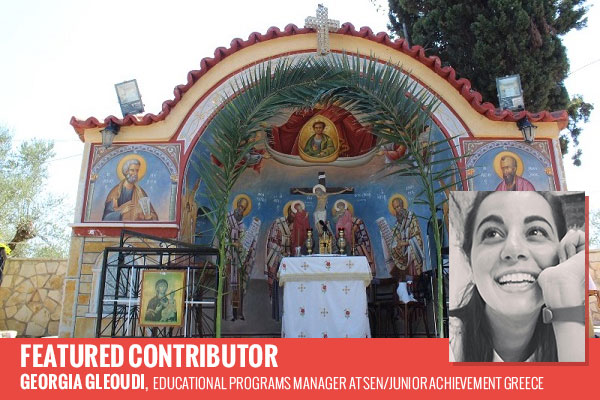
Experiencing the Assumption of Mary in Greece
- By Georgia Gleoudi --
- 21 Sep 2016 --

Featured Contributor Georgia Gleoudi tells of a small Easter in the middle of the summer.
August 14, 2003: I remember myself stepping up the stairs of my grandmother’s house as I returned from the beach in order to change clothes before going out to play with my friends. Entering the bedrooms floor, I watch my mother and aunts discussing vibrantly in front of a mirror about the next day’s event. It was the Eve of the 15th of August, the day when the Eastern Orthodox Church celebrates the Assumption of Mary.
Experiencing the Assumption of Mary in Greece[/tweetthis]
“Look at me! Do you think that this skirt makes me look fat?”
“Oh no! No, you are not fat! But I think that this skirt looks better with this white shirt and not that pink one!”
It could take more than 2–3 hours for them to decide what to wear or with which accessories they would combine it!
Some years later, as a teenager I understood that this day is very important for them and for all Greeks across the country and all over the world. Every detail has a specific importance for us, even the clothes, the hair styling or the exact time that we decide to leave the table and go swimming with our friends. To be honest, I could never understand neither this mentality, nor this focus on preserving these religious traditions and customs. In the eyes of a teenager or a young person with no close ties to religion, it would seem more like a “neurosis.”
As I grew up, I started realizing and sharing this need. The need to celebrate, to belong to a community, to strengthen social bonds, to respect a motherly figure. The figure of Virgin Mary.
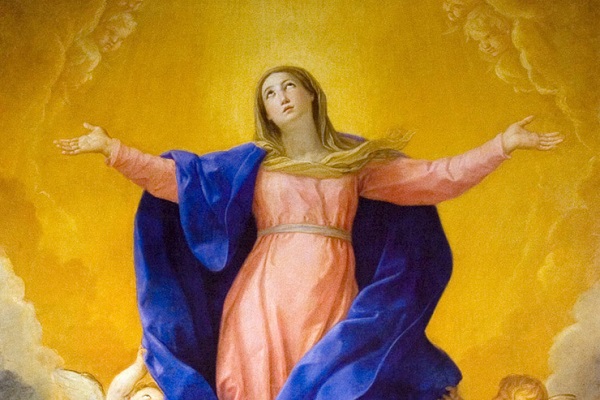
This summer found me taking a tour all over the Peloponnese, the large peninsula situated in Southern Greece. This tour lasted two weeks and on the 15th of August I had the opportunity to visit the Monastery of Francavilla in Elis. The name Francavilla means the village of Franks who conquered the Peloponnese during the 13th century C.E. After the defeat and the departure of the Crusaders, the monastery became property of the Greek Orthodox Church and it was devoted to Virgin Mary. Consequently, hundreds of believers congregate in this area for the grace of Holy Mary to this day. Sometimes, their gathering has to be regulated by policemen!
While trying to find the road that led back to our hotel, I met three wonderful women who were drinking their traditional Greek coffee in their small and bloomed garden. They invited me to sit with them and offered me a loukoumi, the typical delight that accompanies the evening coffee in Greece. First thing they told me was that Mary, one of the girls of the family was celebrating her name day. Feeling this cozy atmosphere, I could not resist opening a conversation on the day of the Assumption of Mary. Since everything reminded me of my own family in terms of traditions and customs, I wanted to see their view and their attitude towards this day. I wished to see whether all families all over this country share the same feelings, thoughts and experiences.
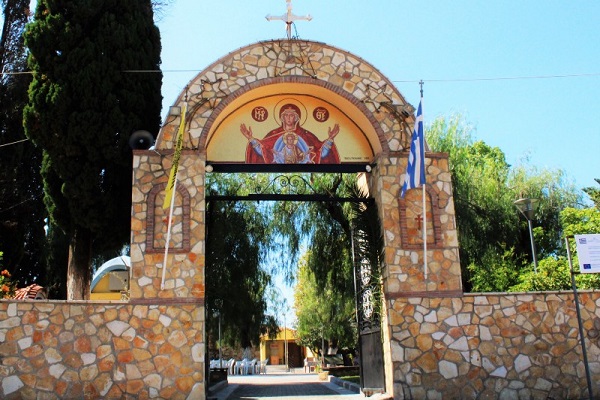
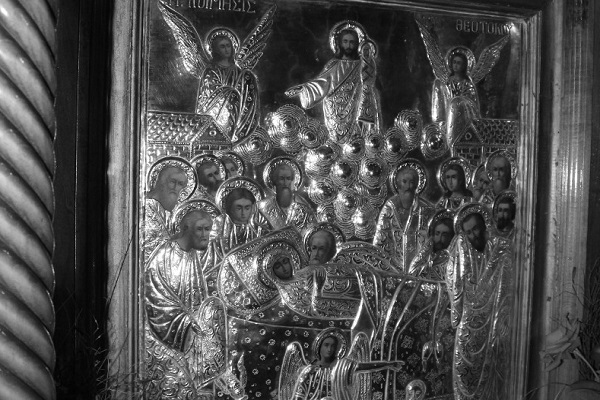
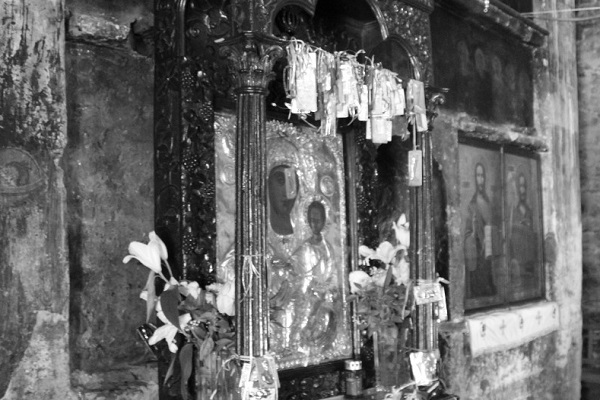
“I was born and raised in a small village in the Western Peloponnese which today counts no more than 150 residents. Nowadays, the average age of its residents is around 65 years and the majority of the youngsters has left the village and has moved to larger cities to obtain further professional opportunities. My family was a typical family of farmers, the father and the mother working the land never having finished the compulsory education. I can remember the day of the 15th August since I was a little child. My mother was, and still is, a deeply religious and devoted person. On the contrary, my father was attending mass only during the important religious feasts such as Christmas, Easter and the Assumption of Mary. His one and only motivation was the outcry and the gossiping of the people of the village, in case he did not go to church. As a leftist, he did not approve the fast and the religious devotion but he never expressed any objection to his wife and children regarding this issue.” Argiro, 51.
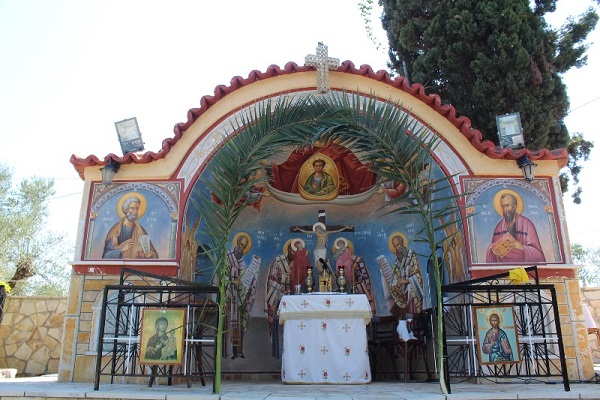
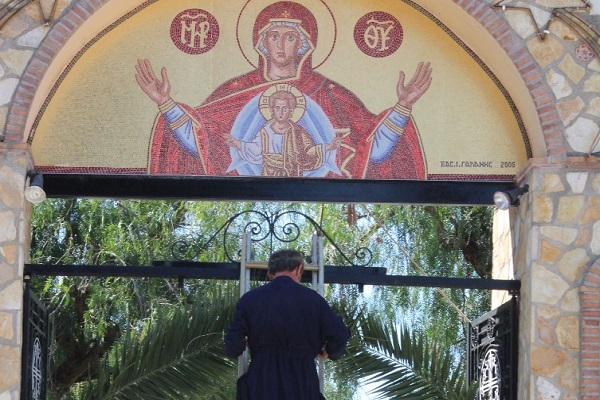
“I am 25 years old and I am an Architecture graduate. Next month, I will be moving to the United Kingdom for a paid internship that lasts one year.” When asked if she fasts, she told me that the fast on the 15th of August depends on her mood. If she feels that she wants to take the Communion, she may fast. Nevertheless, she never fasts for many days but only for the night before the 15th of August and she only abstains from meat. Still, she always fasts during Easter. For her, fasting and Communion during Easter is an important matter in terms of maintaining the traditions and the family feeling.
I do not find it very important. However, I think that both fasting and receiving Communion is a spiritual linkage with God. The opinion of the community does not affect me. Most people see the Holy Communion as a hollow habit and they do not know what that really means. That’s why many priests during their sermon remind the flock of the importance and of the true meaning of the Communion.”
She remembers herself going to church to fast and to take the Holy Communion since the age of six. Since she was a child, she used to wear dresses but growing up she decided to wear trousers. Yet, trousers remain her second choice of outfit.
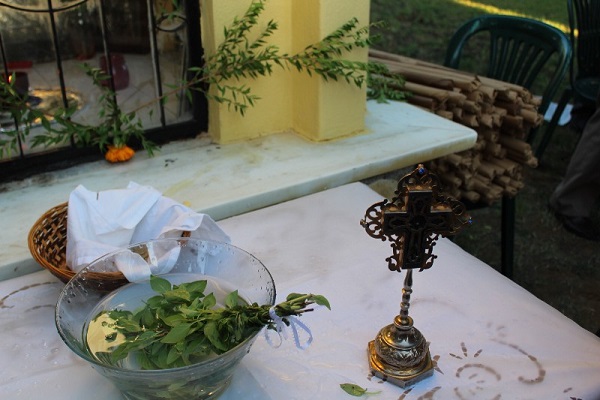
When Argiro was asked about the fast that she and the rest of her family followed, she replied, “As children we had to fast for two or three before the Holy Communion and especially, during the last day we were not supposed to eat oil. Generally, the food that we should not eat included meat, eggs and all kinds of dairy.” During her adolescence, she stopped fasting and receiving the Holy Communion. Nonetheless, she kept attending mass and continued preparing herself with the same devotion for this day. During the fast, her mother adapted the cooking to the needs of the fast. Subsequently, Argiro followed the fast willy-nilly. The preparation for the Assumption of Mary lasts several days. She remembers her mother cooking an assortment of different dishes and desserts for the visitors of the 15th of August.
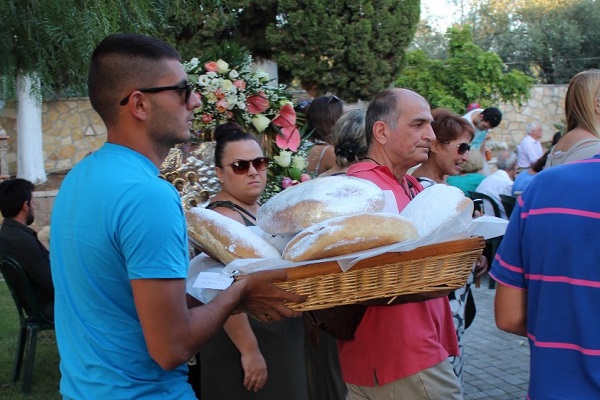
Now that Dimitra has less than a month before moving to the UK, she was asked if she plans on keeping these traditions while abroad.
“I will try to keep all these traditions. Especially, during Easter and in the 15th of August. These are the most important religious days of our Church. Maybe, my fast will not be that strict, especially if we take into consideration that I will belong to a multicultural community and I will be a vivid part of it.”
I wondered if she would like her children to maintain these traditions were they to be born abroad and of course if she wants her children to follow the Greek Orthodox faith.
“I would like them to keep all these traditions and the respect for the religion and the connection with the divine. Especially, during these two important religious events, I will encourage them to fast and feel this blessing. As I have connected the Greek Orthodox faith with the Greek nationality, it is unquestionable that my children will be Greek Orthodox.”
Also, she mentioned that on the 14th and the 15th August, housewives do not do the chores such as cleaning, weeping or laundry. Usually, the main course will be lamb which is what most Greek families prefer for such special occasions.
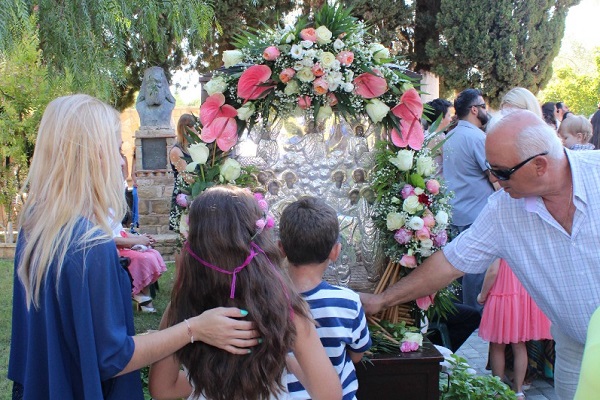
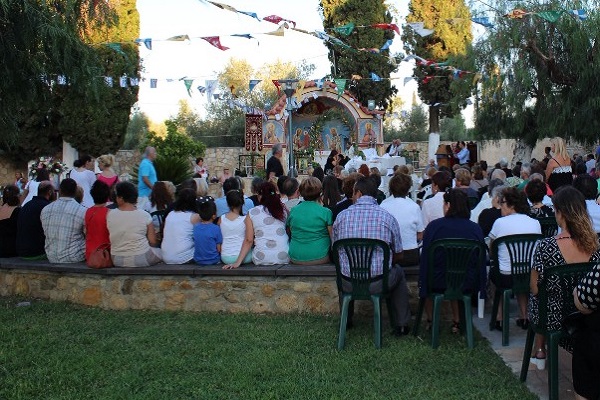
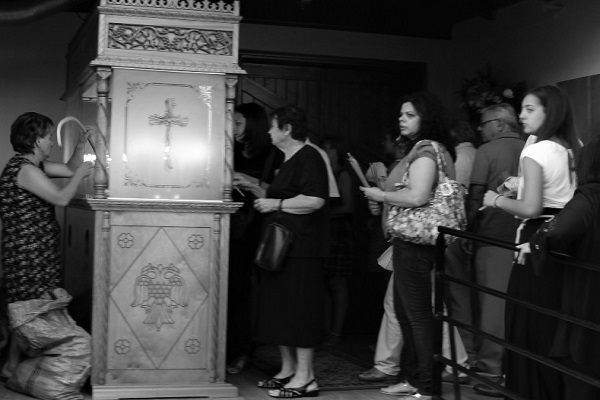
Now that she has left her village for more than 35 years, Argiro still goes to church and she still looks forward to that day. Her memories and her feelings for this day are so strong that when she is not able to attend mass, she undergoes a feeling of loss and sadness. It reminds her of her family and of the feeling of belonging. When asked if this day is as important as Easter for the Greek Orthodox flock, she was totally positive: “Of course, this feast is as important as Easter. The only difference is that during Easter, the whole process lasts for a week so there is an escalation. For Greeks, Virgin Mary has the same importance as Jesus Christ. She is His mother and she plays a vital role in the religious and spiritual life of the Greek Orthodox family. A typical example is that most Greeks, when facing a crucial problem, we pray in the name of Virgin Mary.”
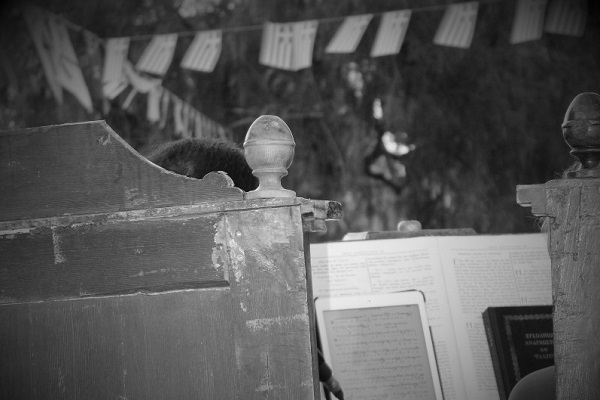
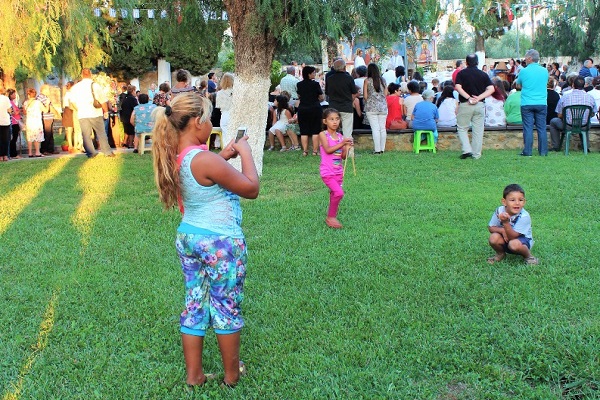
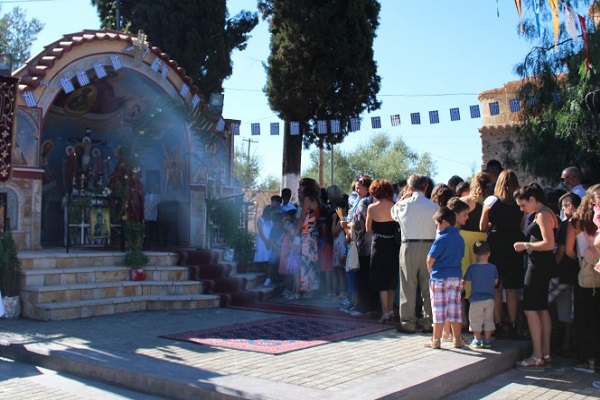
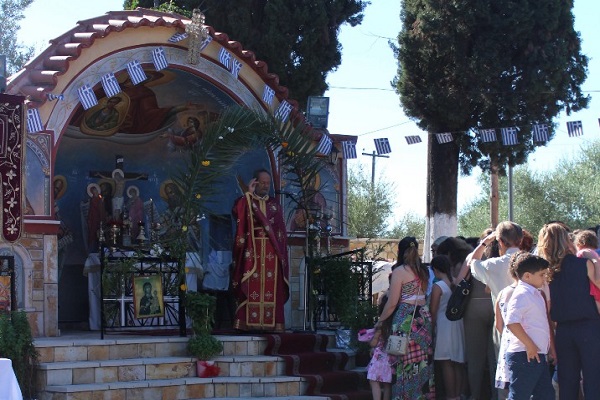
“For me, Virgin Mary is everyone’s mother. Like the mother in a Greek family that is the main pillar and the person we run to when we need something, thus we evoke Virgin Mary in our prayers. When we are in need or in despair, we pray to Her. Virgin Mary offers consolation and hope. For instance, my aunt who is catholic and she is married to a Greek man, has developed a special relationship with Virgin Mary and with the day of Assumption. She fasts for 2–3 days and she goes to the church to worship the icon of Mary’s Assumption,” Dimitra said.
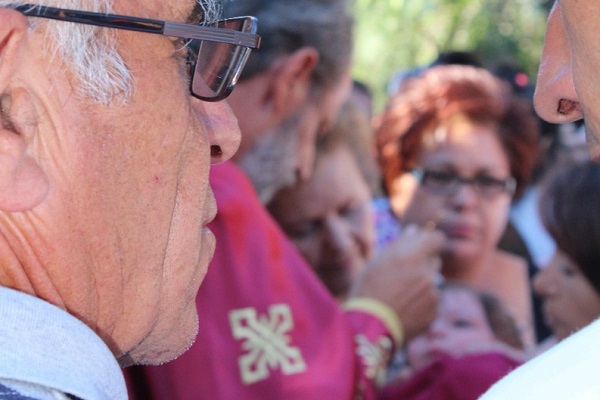
Comparing the past with the present, Argiro has noticed that the contemporary society is more flexible with these issues and less strict with the religious rules that a family has to follow. Even if she could be characterized as secular and not religiously devoted, she stills thinks that she has to wear a skirt to enter the church. That way, she feels more decent and appropriately dressed for a Church environment. However, if this mass were a private mass, she would wear a pair of trousers. “But as I hear myself talking, I feel that the community and its opinion seems to be more important than Virgin Mary”.


















